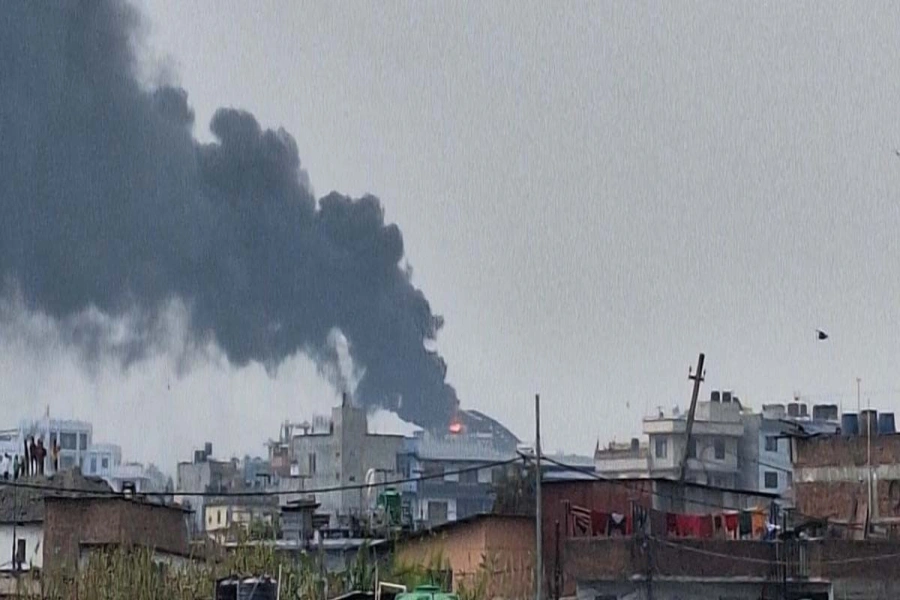Finance Minister Yubaraj Khatiwada should coordinate with Ministry of Information and Communication to immediately implement clean feed policy
Clean feed policy can set up the base for fair competition between products that are manufactured in Nepal versus those imported. It has been implemented in almost every country in the world. Our neighbors India, China, Bangladesh and Sri-Lanka all have strict clean feed policy. Under the policy only TV commercials produced and fed by national or local advertisement companies of the country are played in and can be played on any TV channels broadcast within the country.
If you are watching Zee TV in Nepal, commercials produced by Indian advertising agencies will not be allowed to play under the clean feed policy. In the United States, inter-state clean feed policy is implemented. If we are watching the same football game in New York and Texas, the TV commercials will be different. Clean feed policy supports local media houses and local businesses. Ironically, Nepal has not implemented this policy yet.
A country which is seeing an exponential rise in trade deficit still allows commercials from other countries to be played on its TV channels.
Government’s reluctance to implement clean feed policy is a major concern for bloating trade deficit of the country. We are at a stage where we have crossed the sensitive eight months of foreign reserve barrier. With depleting foreign reserves and ever rising import from India, our desire for Indian commodities keeps growing. Have we ever asked why?
'Clean Feed' policy soon: Minister Rai

The most watched TV channels in Nepal are Sony, Zee and Star Plus. Shows like Indian Idol and Saregama have Nepali TV audience glued to their couches. With TV channels come the most effective form of branding and marketing—the TV commercials. As majority of Nepalis watch these shows on Indian TV channels where picture perfect, eye watering and emotionally blackmailing Indian TV commercials are played. They make you feel like your lives are incomplete without these products.
Pampers diaper for babies, dairy milk for the loved ones, household appliances and everything else that we need in our daily lives are displayed here with utmost precision and enticement. As a result Indian products find more of a market place in Nepal.
For the import of Indian products, Nepal exchanges USD to buy INR. We send more of our brothers and sisters to work abroad. They send USD back to Nepal, sometimes at the cost of their own lives.
It is bewildering how politicians and bureaucrats are unable to comprehend such a simple problem. Or is it the lobbying of the traders who import these products? A country driven by syndicate, graft and commissions is willing to plunge into an economic crisis, but is unwilling to implement the clean feed policy. Why? The advertising agencies might have their vested interest to implement clean feed policy, but the greater good is beyond our imagination.
We met a renowned industrialist recently. One of his companies produces baby diapers in Nepal. We had heard of every single Indian brand of diapers—Pampers, MamiPoko Pants and others—but we had not heard of this Nepali brand. Being a good friend, he offered us a few sample packets. We were elated with the performance of these diapers compared to every single brand we had used in the past. This product was of better quality, aesthetically superior and disposing was very easy. This had us thinking about the dominance of Indian products in Nepali market and in our lives. As we reflected on our experience, we realized, the love for these products is a direct result of watching Indian product commercials on TV for so many years. Our case is not against the Indian products, but this is a pure case of unfairness. Here is why.
Unfair case
Indian products spend billions of rupees in branding and marketing campaigns. These TV commercials are result of the best branding and marketing team Indian companies have. These talents are then given freedom for creativity backed by a huge budget. The traders who import these products to Nepal get a free ride. They do not have to spend a single penny on branding and marketing as the Indian TV commercials do their work for free. How can Nepali brands compete with the Indian brands? If the Nepali brands invest a huge amount in branding and marketing, their product cost will go up and they won’t be able to compete. If they don’t brand and market, the Indian products are already dominating the market. This is an unfair fight. It is like boxing with Mike Tyson with one hand tied. And as if this was not enough, Nepali TV channels are playing Indian TV commercials dubbed in Nepali. Things could look a lot different if the clean feed policy is implemented.
A good example is the flourishing domestic alcohol market. In India, TV commercials of alcoholic products are banned. Therefore, Nepalis are not aware of Indian beverages and imports of these products are very low. Domestic product dominates the market. Wai Wai is the biggest name in Nepal’s Fast Moving Consumer Goods (FMCG) market. It has thrived through the most difficult times in Nepal’s history creating Nepal’s first billionaire. If the Indian market had an instant noodle which could be eaten without boiling (Maggie is not one), Nepal would probably not have seen a billionaire.
Clean feed benefits
There will be a lot of beneficiaries from the clean feed policy. Our actors, sports persons and other celebrities will get more endorsements. They will not have to leave the country. Revenues of local media will grow by at least 50 to 80 percent. The government will benefit from more tax revenue it can collect if the entire TV commercial market comes under its jurisdiction, which is at mere 15 percent currently. Slowly but steadily our trade deficit will decrease, so will our reliance on remittance. Our youth can stay in their own country and help in nation building instead of helping other economies grow. Nepali industries will get a fair playing ground and can flourish, creating more employment. Trading mentality will be discouraged, forcing entrepreneurs to become more innovative.
The lobby against clean feed policy should be considered as treason. Because of unfair playing grounds, many Nepali brands die out soon or cannot reach their potential.
If no one else, Finance Minister Yubaraj Khatiwada, one of the most learned economists of our country, should be aware and should coordinate with Ministry of Information and Communication to immediately implement the clean feed policy. The case is not against any Indian products. It is for creating a fair competing ground.
You might think that you are not influenced by TV commercials. Rethink and reflect what attracts you to these products. You will realize the need for clean feed policy.
Sarda is Managing Director at Sarda Group and Chalise CEO at Saral Urja Nepal





-1200x560-1772467693.webp)






























